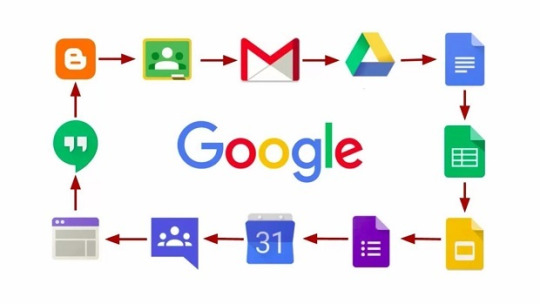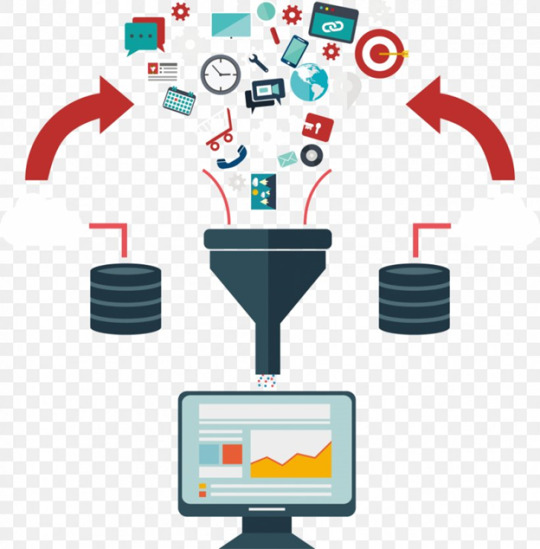Don't wanna be here? Send us removal request.
Text
Free? I don’t think so
Hello, and thanks for clicking.
Now, anyone who knows me, knows that I have been – as titled – a “Google Junky”. However, as this blog is anonymous, you don’t know me. So, let me explain: I am a huge proponent of using just about every item in Google’s suite of services, and I willingly give just about all of my data to Google, and eagerly too. When the first Pixel phone came out, I was so thrilled, even as underdeveloped as it was. I quickly trained the Google Assistant to know everything relevant about me. I loved the simplicity and reliability having a fully Google-focused phone gave me, as it saved me from doing so many tedious daily tasks. It concerned my father a bit about how much I trusted Google, but I was in love.

Image from https://segmentnext.com/2018/04/23/google-data-collection-higher/.
Today, I no longer have a Pixel phone, but I still remain a fan of the Google suite (excluding their attempts to create their own social media, big nope). I am also much more educated about the impacts of data collection, mining, tracking, whatever name you want to use. I do still remain an active user in supplying my different applications with plenty of data, spread across a variety of devices as I am one of the many individuals who values price over brand.
Unfortunately, this is one-sided, so you’ve gotten my introduction and I won’t be hearing yours anytime soon. But let’s dive into the issue at hand: why is online data collection considered such an improper method of developing tech and earning money, and what could be a good middle ground?
In an Open Source article by Cleo Abram, he discusses the purpose of cookies and how our online experience is shaped by these data trackers. Cookies are a way for websites to save short-term memory, making sure the website in use is remembering its user information. Abram says, “[Our] world relies on advertising, which gives three kinds of companies a strong incentive to repurpose cookies to track your online behavior. Brands want to sell products by serving you ads for things you’re likely to buy. Platforms and publishers want to make money by serving those ads when you’re on their site. And middlemen are in the business of ensuring the ads from the brands are delivered to the right people.”
In another article from Open Source, Rani Molla discusses the truth behind free websites. She starts off with Facebook’s new tool showing how much user activity the site records, allowing for some user control over personal data. She says, “The tool . . . also serves as a reminder of the frightening amount of information Facebook knows about you. This isn’t a surprising revelation; it’s not a revelation at all. Facebook is a free service that allows you to do fun stuff like set up a profile and send messages to friends, and it uses a variety of tools to track your every move both online and off. The social network then uses everything it knows about you (read: more than you’d like) to sell hyper-targeted ads. This business model has been around for decades, and it shows how free software (not to be confused with the free software movement) and services are never really free. You’re paying with your data.”

Image provided by author.
It seems fairly reasonable that it would be beneficial for everyone to see advertisements that actually interest us, instead of annoying, non-relevant products and services. Granted, this can go a step too far, but we’ll get to that in a moment. For me, I have found significant value in these targeted ads. I specifically remember one time, I had come across a clothing website that I wasn’t familiar with, and I saw quite a few items I was very interested in purchasing. I was considering my options, and didn’t purchase anything that day. The next day, I wanted to go back and look at the items again, but I couldn’t remember the name of the company. But I knew if I scrolled long enough on Facebook, I would see an ad for that company. So I did, I scrolled for a few minutes and there it was! The clothing shop I was searching for!
Obviously, it’s not so common for people to forget a website and go searching for it again, but it is common for people to compare similar products among different brands. In that sense, I have also seen great value in my Instagram advertisements. Quite often I will be advertised different products or services similar to what I’ve been researching, but from a new source that I hadn’t yet considered. Maybe I end up spending more because I’m reminded of the products more frequently, but I also get much more quality for knowing my options.
Many people recite the Target story of a teenage girl being sent pregnancy product ads before her parents even knew she was pregnant – I’m not going to dive into that here, go ahead and do a quick Google search if you aren’t familiar. Clearly, though, ads can have real power. Advertisements aren’t the end of the story, however. The sheer amount of data we produce and is subsequently collected can easily identify individuals, even without having names or faces. Have you ever known just the first name of an individual and a general location, then did a few searches online and quickly found all of their profiles? Imagine if you had all of their preferences, location pings, et cetera… It’s unreasonable to think that you couldn’t pinpoint the right person.

Image provided by author.
Now, what can we do about this so-called invasion of privacy? Well, you’re probably not going to like the answers. On your various websites and services, regardless of being free or paid, there are some options to limit the information gathered as well as opting out of targeted ads. Usually, this will not stop the websites from keeping the information it has already obtained, or from not gathering other information you provide. A much less likely option in our world today is to simply stop using such sites. Now, this does limit your life substantially, which is why many of us don’t even bother reading the Terms and Condition pages before signing up. As a college student, I often don’t have the choice – I am required to use certain websites and programs for my classes, and all of those programs collect data about me and my online activity.
Many are pushing for federal laws to be enacted, as we are sorely behind in our management of online privacy. I do agree with this method, though unlike some I do not wish for the practice of data tracking and selling to end. I feel the data price you pay for free services is a fair trade-off. However, I propose that instead of endless, lawyer-esque Terms and Conditions to be forced upon users, a secondary option is available. This secondary option would be to change the experience from a free service to a paid service. Instead of data, you exchange money, and thus any personal information they collect, they are unauthorized to sell. Yes, we do still need government regulation to prove that these agreements are followed, but luckily we also have the extreme power of public backlash online if word gets out that the process is not followed. I do understand that this changes different services from a convenience to a luxury, which is where my caveat exists: any sites that users are mandated to use, such as school, work, or government related should not have an option to sell personal data.
Data regarding preferences, location services, and other products can be immensely helpful to improve our daily activities. However, information that can be used to manipulate or damage people, is certainly a criminal violation. If an individual’s medical records could be sold to different health insurance companies, what is the likelihood a sick person would be able to receive the coverage they need at a reasonable price? If the police force is able to access affiliations and biases, what would be the rate of misidentification towards minorities? On the flip side, what if 9-1-1 operators had access to the location pings of both the victim and the attacker? What if security cameras could match thieves with their I.P. addresses?
Our data is powerful, and it’s time we started paying attention to it.

Image from https://smartercx.com/what-is-data-mining-how-can-it-help-cx/.
Relevant sites for more information:
https://www.vox.com/open-sourced/2020/2/3/21116801/ads-internet-sites-cookies
https://www.vox.com/recode/2020/1/29/21111848/free-software-privacy-alternative-data
https://www.vox.com/recode/2019/5/3/18528520/twitter-inferred-interests-targeted-advertising-psychology
https://www.vox.com/2019/12/10/21004787/open-sourced-tech-data-privacy
https://www.vox.com/recode/2019/12/10/20962868/vox-media-privacy-policy-explained-what-we-know-about-you
https://www.vox.com/recode/2019/12/10/20991304/open-sourced-the-hidden-consequences-of-tech-revealed
https://www.vox.com/recode/2019/12/10/20996869/facebook-political-ads-targeting-alex-stamos-interview-open-sourced
https://www.vox.com/recode/2019/11/5/20947419/internet-freedom-report-2019-social-media-election-interference-surveillance
https://www.vox.com/the-highlight/2019/9/11/20859597/internet-privacy-erase-history-google-facebook
https://www.wired.com/story/facebook-social-network-becomes-social-science-subject/

Image from https://favpng.com/png_view/atlantis-business-data-mining-big-data-analytics-information-png/9kiuHTe5
1 note
·
View note